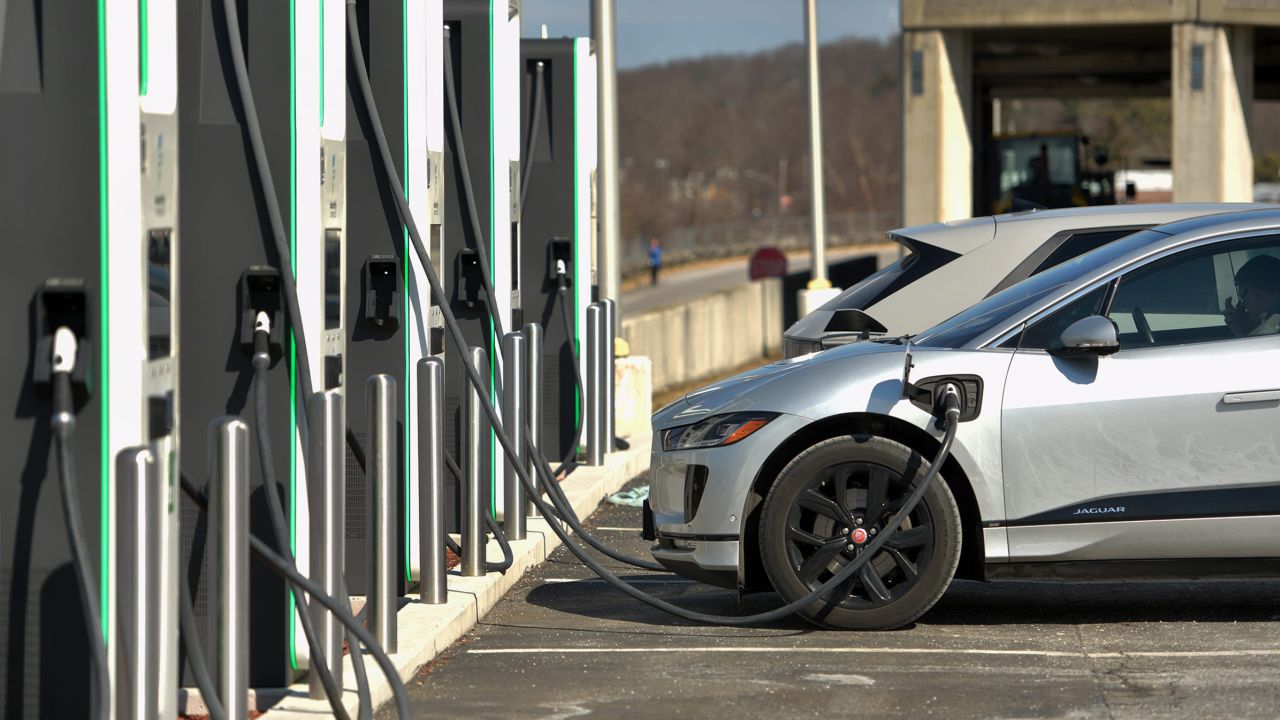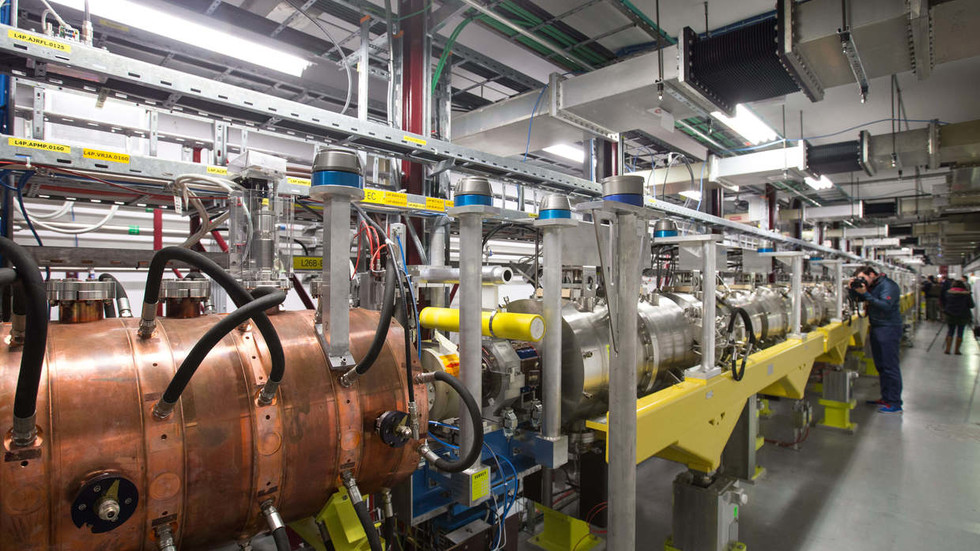CNN —
In what would be one of the Biden administration’s most aggressive climate-change policies yet, the Environmental Protection Agency on Wednesday proposed ambitious new car pollution rules that could push the US auto market strongly towards electric vehicles over the next decade.
Under the proposed tailpipe standards, electric vehicles could account for up to two-thirds of new cars sold in the US by 2032, White House and EPA officials said.
The standards would also have the effect of cutting planet-warming pollution from cars in half. Transportation accounts for nearly 30% of all greenhouse gas emissions in the US, according to the EPA.
EPA Administrator Michael Regan called the regulations “the strongest-ever federal pollution standards for cars and trucks.”
“Together, these actions will accelerate the ongoing transition to a clean vehicles future, tackle the climate crisis and improve our air quality for communities across the country,” Regan added.
EPA officials said that they are considering several different emissions proposals, which could result in anywhere from a 64% to 69% electric vehicle adoption rate by early next decade. If approved, the emissions standards would start model year 2027 vehicles.
The agency anticipates the new rule would mean EVs could also make up nearly half of all new medium-duty vehicles, like delivery trucks, by model year 2032. Officials are also proposing stronger standards for heavy-duty vehicles, including dump trucks, public utility trucks, and transit and school buses.
One expert told CNN the Biden administration’s proposal is a pivotal moment for the US auto industry and consumers.
“It’s a pretty big deal,” said Thomas Boylan, a former Environmental Protection Agency official and the regulatory director for the EV trade group Zero Emission Transportation Association. “This is really going to set the tone for the rest of the decade and into the 2030s in terms of what this administration is looking for the auto industry to do when it comes to decarbonizing and ultimately electrifying.”

Regan and White House National Climate Adviser Ali Zaidi hailed the proposed regulations as a major climate win that would also save American consumers money in the coming years.
Zaidi said that in the Biden administration’s first few years, the number of EVs on US roads had already tripled, while the number of public charging stations had doubled. And Zaidi vowed more to come, with funding from Biden’s infrastructure law for a network of EV charging stations combined with consumer tax credits.
“Whether you measure today’s announcements by the dollars saved, the gallons reduced, or the pollution that will no longer be pumped into the air, this is a win for the American people,” Zaidi said.
Yet even as the administration is writing aggressive regulations to push the market toward EVs, a Gallup poll released Wednesday suggests that Americans are not yet sold on the idea. Gallup polled more than 1,000 adults in the US last month and found that 41% said they would not buy an electric vehicle.
Not only are EVs still more expensive than gas-powered cars, but consumers also haven’t yet grasped the climate benefits of transitioning to zero-emissions vehicles, the poll found. Six in 10 respondents said they believe EVs help the environment “only a little” or “not at all,” Gallup reported.
Transportation is the biggest source of planet-warming pollution in the US, and light duty vehicles – the average cars Americans drive – account for 58% of those emissions. The UN’s Intergovernmental Panel on Climate Change reported last year that aggressive, pollution-slashing changes in the global transportation sector – including the transition to EVs – could reduce the sector’s emissions by more than 80%.
“This is what we mean when we say that tackling the climate crisis is about creating opportunity – an opportunity to put the United States on a clear path to win the jobs and the industries of the 21st century,” Regan said.
Other countries, including the EU and China, are moving faster toward adopting EVs. In the US, California has already proposed that zero-emissions vehicles make up 70% of new car sales by 2030, and 17 other states plan to follow California’s lead.
That means much of the US car industry will already be transitioning ahead of the proposed federal rule.
“I believe it’s pretty doable,” Margo Oge, chair of the International Council on Clean Transportation and a former Obama EPA official, said of the aggressive transition to EVs. “The industry is there. Europe is ahead of the US, China is ahead of Europe – and these companies are global companies.”
New federal tax credits are coming next week that aim to help American consumers save up to $7,500 on an EV. But they have incredibly complex requirements for the auto industry – including that the cars’ batteries and components come from the US or countries it has a free-trade agreement with.
Still, Boylan said the regulations are designed to gradually work over the next decade, by which time consumers should have far more electric vehicle options to choose from.
“You’ve got the tax credits as the carrot,” Boylan said. The proposed tailpipe regulation “provides the stick to backstop these incentives and push the industry forward.”
The EPA will take public comment on the proposal before finalizing a rule in the coming months.
.png)
 1 year ago
8
1 year ago
8










 English (US) ·
English (US) ·